– An Important Contribution to the World’s Space Activities
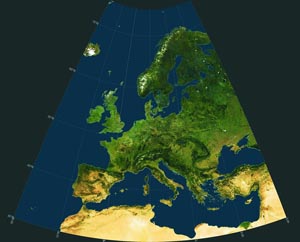 The Nordic countries have a very ongoing space-related research and technology community
The Nordic countries have a very ongoing space-related research and technology community
– Why is that?
Large sparsely-populated areas on the mainland, populations on several arctic islands, a large fishing fleet and merchant navy combined with lots of dark cloudy weather have been a constant challenge for the Nordic people. Besides, they were not slow to realise that new satellite technology could help them rise to the challenges.
That’s why the Nordic countries capitalised on space technology as soon as it became available.
The desire to use space to solve daily practical problems on the ground gradually led to extensive space and application research in the Nordic countries. Industry followed up on the space-related technology, which in many fields provided the basis for commercial production and spin-offs to the society.
The result: A highly competitive space-related industry, in which the main goal is to further develop technology and services that can generate spin-offs on Earth. In some fields, the Nordic countries are at the cutting edge – ranking amongst leaders not only in Europe – but in the world.
Visit:
www.nordicspace.net
The Nordic Countries – and the Space Acitivities
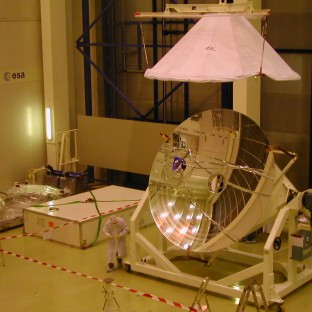
Caption: The Mirror for the Planck Satellite During Test. Denmark Delivers Vital Parts for the Satellite. Photo: Nordicspace.
Space Research
Space research has always held a strong position in the Nordic countries. Solar and plasma physics, in particular, have been high priority fields for the research institutes. However, more recently the main focus has been modern space research based on use of sounding rockets and satellites. For some of the countries, the use of the new tools has resulted in extensive research on a national level, in addition to participation in international projects. Common for all of them, however, is their high level of research competence and their ability to develop and build suitable instruments to use in space.
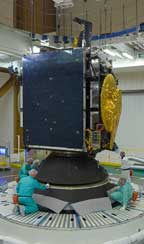
Caption: The Norwegian Thor 6. Photo: Telenor Satellite Broadcasting, Norway.
Communication
The need for good communications has always been a part of Nordic life. The rapid development of space-based equipment and services, as well as the use of satellite communications has become as natural to the Nordic countries. They still maintain their leading position and Nordic companies are among the leading suppliers of both space-qualified equipment and ground infrastructure. More importantly, the Nordic countries also have the greatest density of mobile phones in the world – and Nordic companies are the world’s largest suppliers of such phones. Moreover, Norway and Sweden own and operate a considerable fleet of communication satellites.
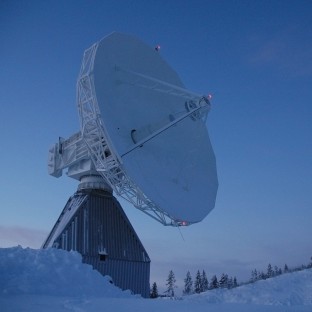
Caption: Antenna for the Galileo System at Esrange. Photo: Swedish Space Corporation.
Navigation and Positioning
Shipping traffic has always made use of various navigation instruments and services of different types, but this has not been the case in other fields, until recently. The satellite technology changed that and accurate positioning and navigation is now a must in most cases.
Based on the American GPS, the Differential GPS was developed for accurate navigation at sea, on land and in the air. For the Nordic countries, navigation systems and equipment constitute one of the largest commercial fields connected to the use of space. Navigation and positioning using GPS is now widely used in all aspects of the Nordic communities. These areas are in constant evolution and the Nordic countries are active partners in developing as well as building the new systems, EGNOS and Galileo.
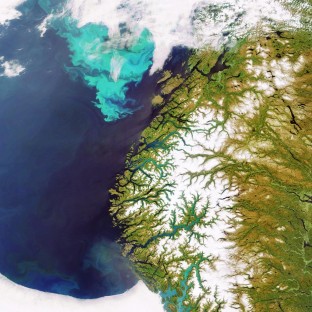
Caption: Observation of Plankton Concentrations along the Norwegian Coast. Photo ESA/Meris.
Earth Observation and Meteorology
Earth observation is given the highest priority in the whole Nordic region. Data from satellites provide unique opportunities to map and monitor the large ocean and land areas covered by the Nordic countries, regularly and with limited resources. Application research and the development of services pertaining to the use of Earth observation and meteorology satellites is therefore a considerable field, in which research institutes, users and industry are all heavily committed.
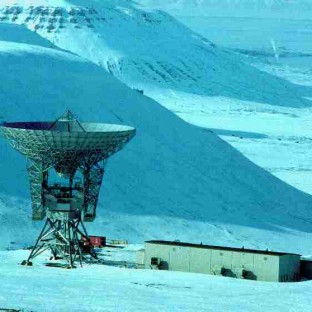 Space Infrastructure
Space Infrastructure
The high latitudes of the Nordic countries, their proximity to the Polar Regions and their relatively mild climate have given them a unique opportunity to create an infrastructure able to support space activities. With several stations capable of receiving satellite data, launching facilities for sounding rockets and balloons, research installations both on the mainland and in the arctic regions – the Nordic countries can support most of the world’s spacerelated community.
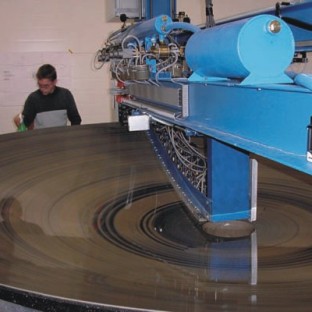 Industry
Industry
The Nordic countries are important suppliers to the space related industry, in many cases delivering high technology products for the space research community, something which has provided access to the commercial market for the same or similar products. Industrial companies in all the Nordic countries are important suppliers for the European launcher programme, both within the software and hardware field. Other strong fields are electronics for satellites and ground infrastructure, developing and building and managing small satellite projects. Developing and delivering high technology components for space is the main focus for several companies, while other companies have that as side products in addition to other high technology production. For all parties involved, delivering to the space related community is a small, but very important field.
Caption: Polishing of the Main Mirror for the Planck Satellite. Photo: Opteon, Finland.
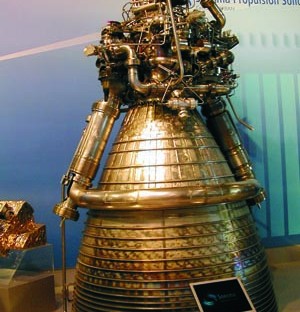
Application
The policy for all the Nordic countries is that investment in the space research is going to create large spin offs for the society in general. Fields such as meteorology, environmental monitoring, communication and positioning are typically new services based on satellite technology. For the industry, the large demands for quality and reliability for space qualified components contribute to bring the companies in front in developing and delivering products for the commercial terrestrial market.
Caption: Developing Engines for the Ariane Programme Gives Synergy to New Material and Production Techniques. Vulcain nozzle from Volvo Aero, Sweden. Photo: Nordicspace.
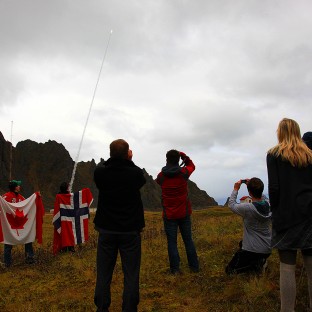 Recruiting for the Natural Science Field
Recruiting for the Natural Science Field
To ensure recruitment to the rapidly growing space research and space utilisation fields, all the Nordic countries have invested resources in inspiring, recruiting and educating people to fill the need for highly educated personnel. Already from the secondary schools, it is possible to choose a direction that will lead to employment, at different levels, in fields concerned with space and data from space. However, the first task is to inspire the youngest to choose a career within the natural science, the next is to educate them with the goal to ensure adequate personnel resources. In the Nordic countries the education systems for adequate personal cover all level from the secondary school to the universities.
Caption: Launch of CaNoRock II. The CaNoRock programme shall stimulate young people to choose a carrier within natural science. Photo Andøya Rocket Range, Norway.
